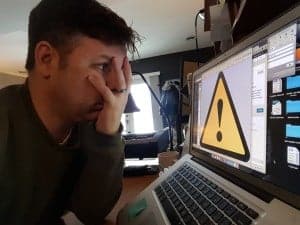
Why?
Because, while I believe conversations about “isms” are crucial in the world right now, the white, US-native, able-bodied, cis male, mainline-Christian-turned-Unitarian-Universalist, upper-middle-class perspective is the only perspective I have. I simply can’t speak from the perspective of a black person, or of a woman, or of an immigrant, no matter how many (trigger warning) “friends” I have in any of those groups. And that makes me both profoundly sad, and profoundly grateful.
It’s upsetting to recognize the pain, frustration, and anger in those who write lists of “8 Things Transgender People Do Not Owe You.” Or “10 Things You Shouldn’t Say to Someone Who Uses a Wheelchair.” Or “29 Stupid Things White People Do.” I confess to being snared by the “gotcha” in the title of Charles Davis’s Vice column, “‘Microaggression’ Is a Stupid Word You Should Take Seriously.” And this wonderful Everyday Feminism article—in which Jennifer Loubriel (a Woman of Color) gently, firmly, and very effectively supports a “no white tears” rule for cross-cultural conversations—was a difficult, difficult read. The very act of seeking to empathize with a fellow human being, when done from a place of privilege, can be hurtful. There’s no one for whom that doesn’t suck.
So with all that pain, with all those seemingly insurmountable obstacles between souls, where can I find cause for “profound gratitude”?
I’m profoundly grateful because the narrowness of my own perspective reminds me that only through connectedness can we approach perfection. And I’m grateful too that we can only approach perfection: omniscience does not exist in the human animal, so we simply have to rely on one another to share wisdom, experience, and insight. Our limitedness makes it essential that we nurture community, for the sake of our very survival.
Two videos showed up providentially on my personal Facebook feed within hours this past week. The first was Julie Bindel’s opinion piece in The Guardian, reminding us that censorship, while it can be a tempting response to opinions we find upsetting, is generally counterproductive. (“Political movements such as civil rights and feminism,” she reminds us, “have made such progress because we were able to hold people to account.”) I know that some of my most cherished growth moments have come after my demonstrated ignorance, thoughtlessness, or naïveté were named and corrected, rather than simply being silenced.
The second video was this delightful out-coming by 24-year-old Australian train driver (and transman) Henry Tadebois, who requests that his friends and family begin to use his new name and appropriate pronouns, but assures them that “Don’t worry, I won’t get offended” if they slip up, before inviting them to “ask me any questions you might have.” (And while this is indeed wonderfully generous of Henry, I will reiterate here the caveat I shared when I first re-posted the video on Facebook: Coming out definitely ≠ inviting your questions about stuff that doesn’t affect you. The revelation and the invitation are two different things.)
These two videos—the one, a warning against censorship; the other, an invitation to awkward curiosity—are opposite sides of the same coin, I think. They both point to a truth that’s as fundamental to humanity as it is terrifying: No genuine community can exist unless we express and demonstrate a willingness to be offended.
That’s why wedding vows don’t specify that two people are joined “until one of them really crosses a line.” It’s why my home congregation’s Covenant of Right Relations names very explicitly the fact that we expect to disagree with one another, but that we commit to “staying at the table” in spite of those disagreements. And it’s why, whenever I come out to a new person or group of people, I always invite the audience to ask whatever questions come to mind.
I’m a white, US-native, able-bodied, mainline-Christian-turned-Unitarian-Universalist, upper-middle-class cis male. The “gay card” is really the only strike against me in the Privilege lottery, so I’m all but immune to oppression and bigotry. Not everyone can stand in this place of safety and speak as boldly as I do. But if there’s something you wonder, or something you’re curious about, or something you feel a need to say, please say it. If it’s none of your business, I may tell you so. But more likely, I’ll answer you as forthrightly as I’m able. That’s the best way for both of us to grow.
[1]And modest. I’m also very modest. Be sure you mention to people how modest I am when you tell them about this blog.





Recent comments